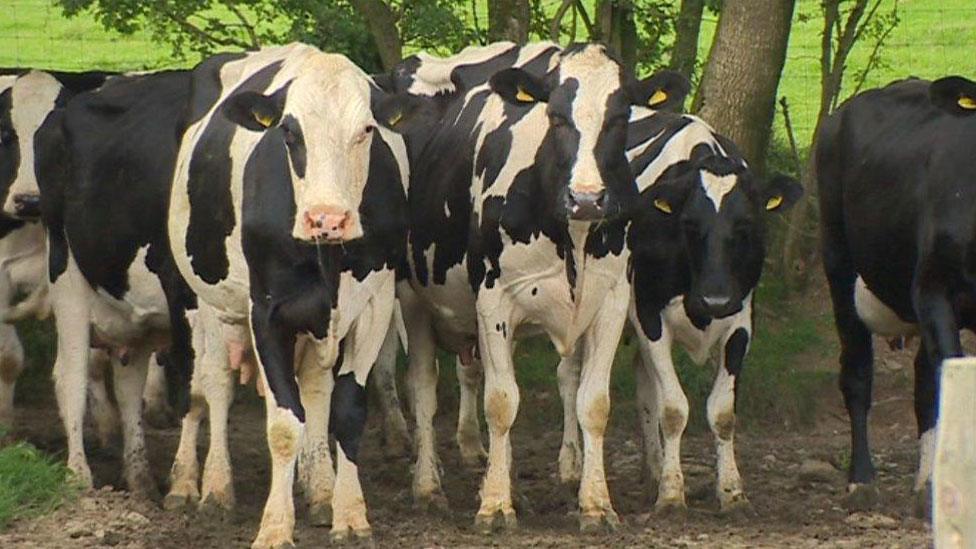Ceredigion former farmer has 'lost a special way of life'
- Published
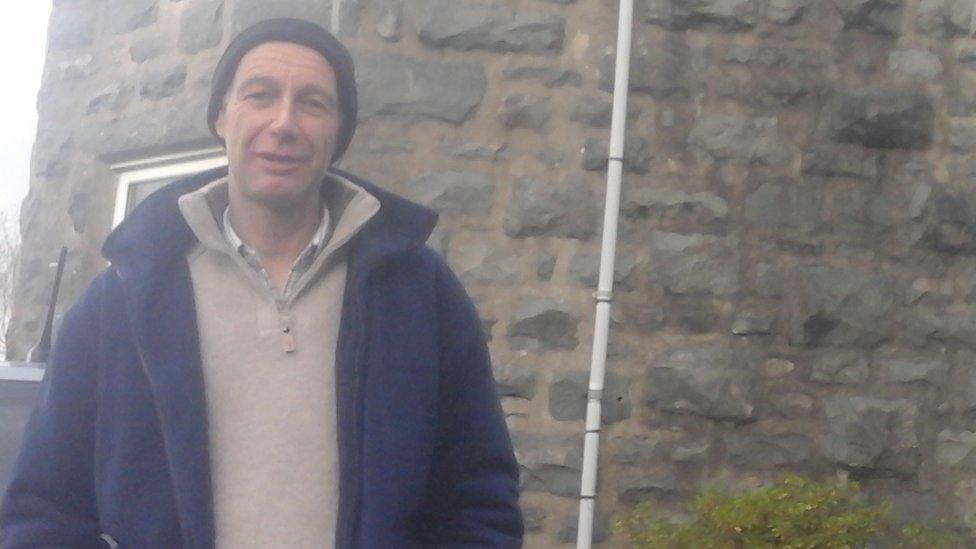
Mr Grooms has farmed since he was a teenager
Trevor Grooms' eyes start to pool as he recalls "better times".
He is among the thousands of workers who have left the workforce on Welsh farms in the last two decades, with the total number employed having now hit a 20-year low.
Mr Grooms once farmed 350 acres (142 hectares) of organic Ceredigion pastures, milked 95 cattle twice-daily and employed five people.
Today, you will find him working the night shift, packing boxes for an online book company in Bangor, Gwynedd.
It all changed six years ago when, faced with escalating costs, plunging dairy prices and - the final straw - planners' refusal of his application for a wind turbine on his land, Mr Grooms decided to quit dairy farming.
'I loved it'
He sold his farm - Ty Hen in Sarnau, near Cardigan - and moved with wife, Sue, and their four children to Harlech to run a caravan and holiday let business.
But, crippled by bridging loans, the 52-year-old, had to take an £8.25-an-hour warehouse job packing boxes six nights a week to help pay his bills.
"It's certainly not the life I was envisaging for myself and my family when I was dairy farming," he said.
"I'd always been a farmer and I loved it. It was never going to make me rich, but on a good day, it was a special way of life.
"In between milking, if the sun was shining, we could take the kids for a picnic on the cliff top, look out over Cardigan Bay and think, 'This is the life'."
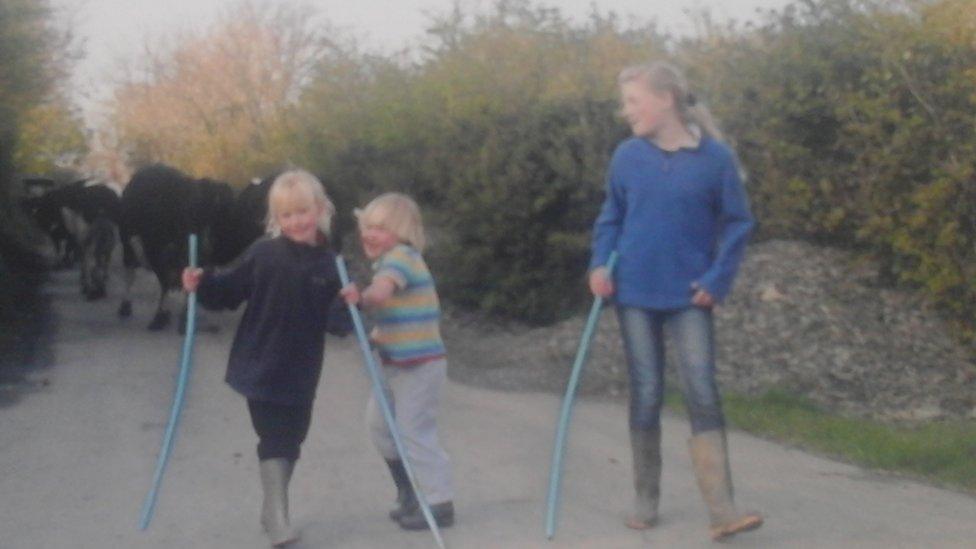
Idyllic days: Mr Grooms and his wife, Sue, had help from their children, Beca, Jac and Sophie (left to right) at Ty Hen
But the storm clouds were never far away as agriculture increasingly moved towards economies of scale in the search for viability.
"By 2011, it was clear that, if our business stayed the same size, we'd have to be much more efficient," Mr Grooms said.
"We were paying £600 a month for our electricity, most of which was used in the milking parlour.
"The wind turbine was our last hope and, when our application for permission to site one on our land was thrown out by the council, the game was up for us."
All the jobs at the farm were lost and Mr Grooms had to sell up.
New owners redeveloped the family's home and the outbuildings and, nowadays, it is a holiday complex,
"When we quit, it was a very traumatic time," Mr Grooms said. "I would rather not have gone through it."
However, he said he was "not the only one", with farmers in Wales leaving the industry every year "because they just cannot make enough money to live on".
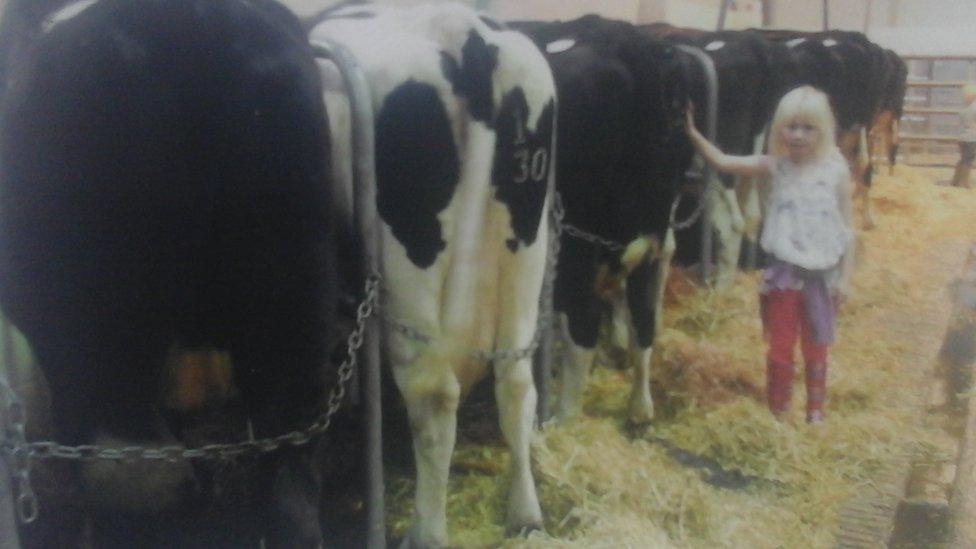
Mr Grooms' youngest daughter, Beca, at the family farm in 2011
"The business model for the small to medium sized traditional family farm has collapsed because it can no longer pay the family to work there.
"If the farm makes any money at all, it's usually only sufficient to pay one person a wage. So the husband or the wife - or even both - has to take another job elsewhere, often with a local specialist contractor in order to supplement their income.
"There is certainly not enough income for the children to work there too, so the mother or father keep going until ill-health and age catch up with them, then the farm gets sold off."
Mr Grooms believes uncertainties created by Brexit negotiations are further damaging farming in Wales.
"Farmers can't plan any more. At least under the EU, we knew we could look five years ahead at a time," he said.
"Now, there is only uncertainty and that means farmers are unwilling to invest for the future because they have no idea what that future will look like.
"But in the longer-term, I do believe farming has a viable future. There are many young people out there ready to take up the challenge, but they need to be supported by government policies and realistic food prices that give them sufficient profit to make a living."
- Published12 July 2016
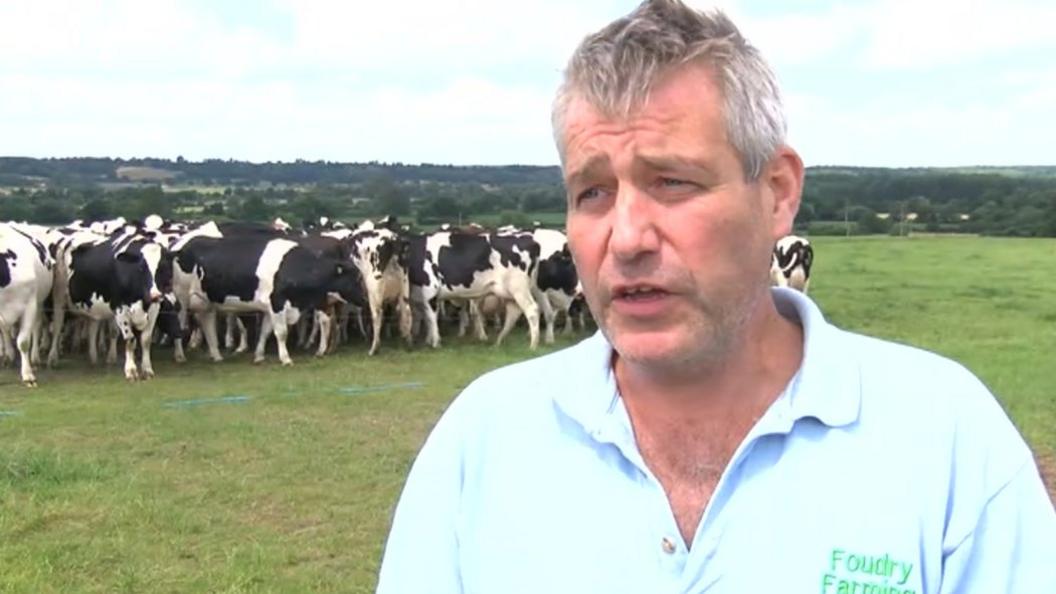
- Published24 June 2016
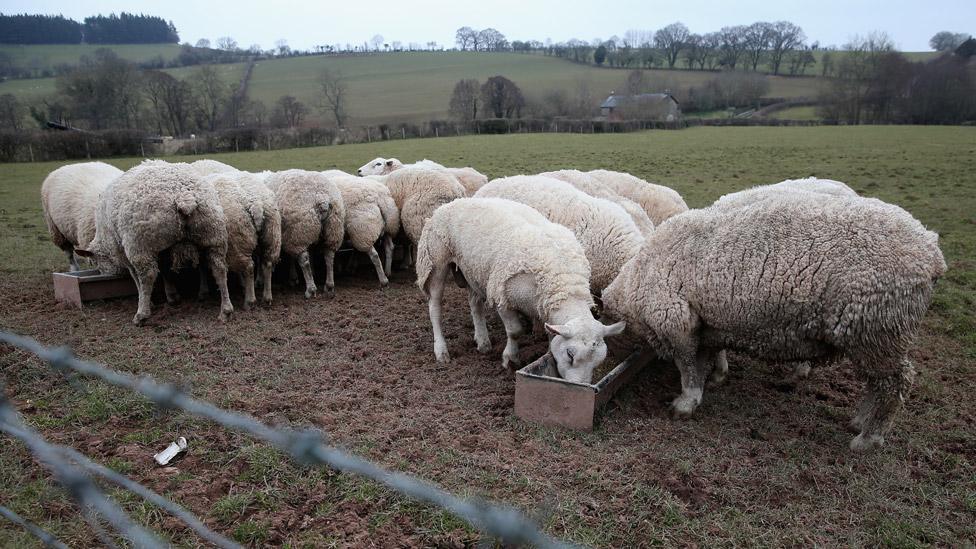
- Published24 March 2017
